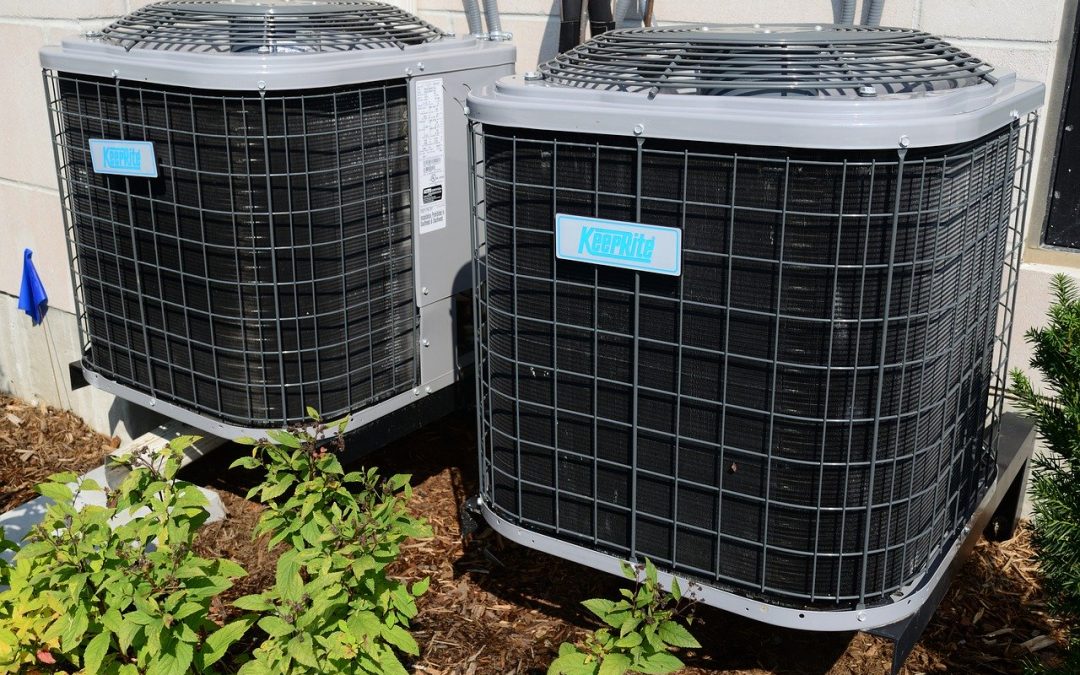Has this ever happened to you? The first spell of warm weather arrives, you turn ON the air conditioner, and it blows….. warm air. If you are fortunate, it doesn’t happen the Friday before a holiday weekend when you’ll be hosting family and friends (at least before the days of social distancing). In a panic, you call your HVAC contractor only to find that they are swamped with calls and will get back to you “in a few days” – usually after the hot spell is over. You search online, call and beg, and eventually you find someone who can send a service technician to check out your unit in hours, rather than days.
The technician arrives and you hope it’s something simple, like a dirty air filter or inexpensive repair. Often times the news is not so welcome, and you hear the service technician say, “Your unit is shot and it needs to be replaced.” The technician then turns salesman and begins speaking in a foreign language of BTU’s, tons (cooling capacity, not 2000 pounds), SEER (cooling efficiency, not the grill marks on a steak), R-22 (not R2-D2, btw), dBA’s, coils, freon, and so on. After being befuddled by HVAC-speak, you are given an on-the-spot quote for a new unit.
The quote may or may not create sticker shock as an air conditioner isn’t something you buy every day (or every year). You decide that you don’t want to sweat any longer but feel obligated to ask questions before dolling out a semester’s worth of college tuition. So, you ask.… “How quickly can you replace it?”, “What brand is it?”, “Is it a good brand?”, “Do you have financing?”, “Is it efficient”, “What is the warranty?”, “Do you have any less expensive options?”
Unfortunately, you don’t have time to do proper research, nor does the technician have a lot time to ask you questions. They need to get to their next service appointment! You both feel the pressure of urgency and it is easy to skip dialog that will ensure the new unit is appropriate for your comfort needs.
To avoid being unprepared– whether it be an emergency replacement, or one that you can properly research – here are the questions that the HVAC contractor SHOULD ASK YOU in order to properly understand your comfort and cooling needs:
- Did the old unit cool adequately? This gives the contractor an idea of whether the old unit had enough capacity, or whether there might be other issues such as leaky ducts. This assumes, of course, the old unit had been operating properly. The contractor should ask for any service records that you may have, if they do not already have them.
- Did the old unit control humidity adequately? Were you comfortable during the summer, or did the house often times feel dank and clammy? The latter could signify an issue with the old AC system or is a sign of excessive air leakage in the house envelope ducts – a common issue in many homes. For more information on the causes of high humidity in a home, see my earlier article titled, “It’s Springtime! Why is my House so Humid?”
- How low do you set the temperature during the summer? The capacity of an air conditioner is determined by US Department of Energy regulations that specify an 80F indoor temperature in the rating procedure. HVAC manufacturer’s data, on the other hand, shows a ~4% loss in sensible capacity for every degree the indoor air temperature is below 80 F. This loss of sensible capacity (the ability to cool air) when the thermostat is set below 80F is irrespective of the computed house cooling load. This should not create a problem in mild or warm weather but could make it difficult for the system to hold indoor temperature in hot weather. The contractor should account for the loss of cooling capacity with lower air temperature in the system sizing – however, it’s most often overlooked.
- Do you schedule your thermostat for different settings during the day/week? An AC unit with little excess capacity could take hours to cool the house down from, let’s say, 80 F to 75 F, while a unit with more capacity will recover more quickly. However, too large of a unit will result in short run-times and limit the amount of moisture the unit can remove, resulting in poor humidity control. As such, sizing of an air conditioner is an exercise in “not too large and not too small”, and not one of “bigger is always better”.
- Was the old unit too noisy (inside the house)? Objectionable noise from the AC system inside the house could be due to a number of reasons:
- Undersized ducts can create noise from high static pressure and transmit the noise throughout the house.
- A circulating air blower set on too high a speed, or is too large relative to the outdoor unit, distributes more air to the house, and thus, has more air noise.
- Air noise emits from registers or grilles that are located too close to the air handler. The most problematic tends to be large return air grilles attached to a very short return duct or has no duct at all.
- If the ducts, air registers, or grilles cannot be modified, and the indoor air handler is being replaced as part of the system, consider a two-stage or variable capacity system. These systems will operate on a quieter low speed for most of the year. See my earlier article titled, “What Is a Thermostat and How Does It Affect Comfort?”, for more information about the benefits of two-stage and variable capacity operation.
- Was the old unit too noisy (outside the house)? If the outdoor unit was noisy, the HVAC contractor can propose a quieter model. Nearly all manufacturers publish sound ratings for their outdoor AC units. Similar to the indoor unit, a two-stage or variable capacity system will operate on a quieter low speed for most of the year,
- Do you have rooms that do not cool as well as the rest of the house? Often times, a house has air ducts that do not distribute enough air to the rooms they serve. This is particularly true for rooms located the farthest from the air handler or are located in an upper floor. There are a range of possible solutions from easy and inexpensive (rebalancing airflow) to complex and costly (a whole new system). The technician would need to perform a series of measurements before recommending a solution.
- How important is energy efficiency? If energy efficiency, or reduction in greenhouse gas emissions (global warming), is important to you, there is a wide range of cooling efficiencies available. The minimum cooling efficiency in the northern US is 13 SEER, per Federal law. Carrier recently announced a new 26 SEER ducted unit that is twice as efficient! Your HVAC contractor can provide different options and estimate the utility savings with a higher efficiency unit. Also ask if there are any rebates, incentives or tax credits available in your area that would make higher efficiency equipment more cost-effective.
- How important is a long-term warranty? The contractor can offer a range of warranties that come with different products, brands, and tiers of product offerings. They can also offer an aftermarket warranty from a third party. Be sure to check the fine print for the warranty being offered, such as the length of the warranty, whether labor to replace the part is included, whether the warranty covers full part replacement or is prorated by years of use, and what must be done to register the warranty. Also note that the length of the warranty does not mean the product is more reliable. In fact, the products with longer warranties tend to be more complex (and often times less reliable) than products with shorter warranties.
Dan Dempsey is the retired Senior Technical Fellow of Residential Systems, and former Director of Heating Products Development, for Carrier Corporation, a recent spinoff of United Technologies Corporation. Dan has over 40 years’ experience in HVAC product and system design and holds 28 patents and 10 patent applications in HVAC product design. He was the recipient of the GAMA and Carrier Engineering Award and now consults to American Heating & Air Conditioning Co, founded by his grandfather in 1936 and led by his brother Mike Dempsey.
Keywords: air conditioner, cooling capacity, sizing






